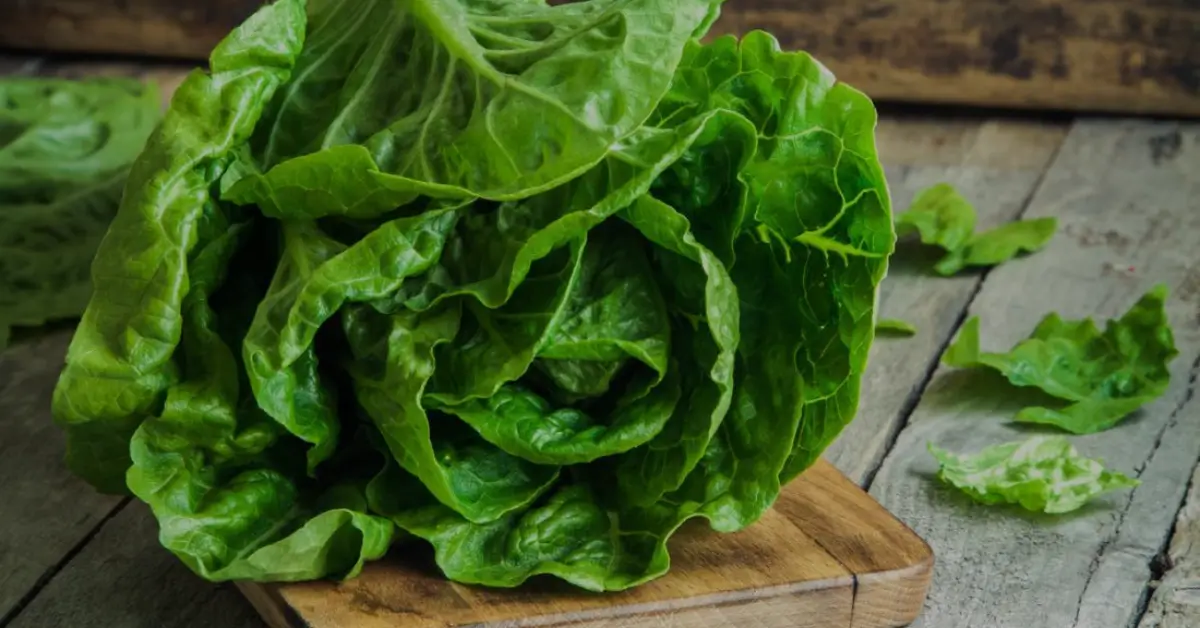I’ve always been curious about healthy food options, and recently, I wondered if romaine lettuce is good for us.
Well, I’ve done my homework and am excited to share what I’ve discovered about this crispy, refreshing vegetable.
Spoiler alert: romaine lettuce isn’t just good for you; it’s a nutritional powerhouse that can boost your health in numerous ways!
Is Romaine Lettuce Good for You?
The Quick Answer: Yes, Romaine Lettuce Is Good for You!
It’s loaded with essential vitamins and minerals, low in calories, and offers many health benefits.
Whether aiming to improve your overall health, manage your weight, or support specific body functions, romaine lettuce can be a fantastic addition to your meals.
What Makes Romaine Lettuce So Nutritious?
Let’s break down the nutritional profile of romaine lettuce. This leafy green is a goldmine of nutrients, and I’m always amazed at how much goodness is packed into those crisp leaves.
Vitamin Content
Romaine lettuce is chock-full of several essential vitamins:
- Vitamin A: This vitamin is crucial for eye health, immune function, and skin health. A cup of romaine lettuce gives you about 22% of your daily vitamin A needs.
- Vitamin K: Essential for blood clotting and bone health, romaine lettuce is an excellent source of vitamin K. One cup offers about 40% of your daily requirement.
- Vitamin C: While not as high as some other fruits and veggies, romaine lettuce still provides a decent amount of vitamin C, which supports your immune system and acts as an antioxidant.
- Folate: This B vitamin is vital for cell growth and DNA production. Romaine lettuce is a good source of folate, especially important for pregnant women.
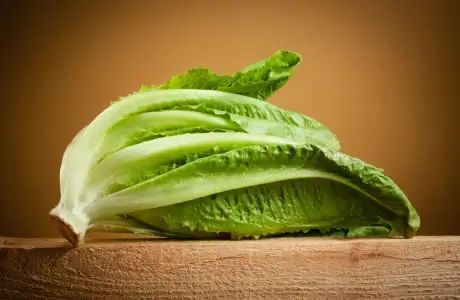
Mineral Content
Romaine lettuce also contains several essential minerals:
- Potassium: This mineral helps regulate blood pressure and supports heart health.
- Calcium: While not as high as dairy products, romaine lettuce does contribute to your daily calcium intake, supporting bone health.
- Magnesium: This mineral involves numerous bodily functions, including muscle and nerve.
Fiber and Water Content
Romaine lettuce is high in fiber and water content, which can aid digestion and help keep you hydrated. The fiber in romaine lettuce can also help you feel full, which is great if you’re watching your weight.
Health Benefits of Romaine Lettuce
Now that we know what’s in romaine lettuce, let’s explore how these nutrients translate into health benefits.
Trust me, you’ll be reaching for that romaine salad soon!
Heart Health
Romaine lettuce can be a heart-healthy choice. Its potassium content may help lower blood pressure, while the fiber can reduce cholesterol levels.
The vitamin K in romaine lettuce also plays a role in preventing the calcification of arteries.
Eye Health
The vitamin A in romaine lettuce, particularly in the form of beta-carotene, is excellent for eye health.
It can help prevent age-related eye diseases and maintain good vision.
Bone Health
With its vitamin K and calcium combination, romaine lettuce supports strong bones. Vitamin K helps your body absorb calcium more effectively, reducing the risk of osteoporosis.
Digestive Health
Is romaine lettuce good for your gut? You bet it is! The fiber in romaine lettuce aids digestion and promotes regular bowel movements.
It can help prevent constipation and support a healthy gut microbiome.
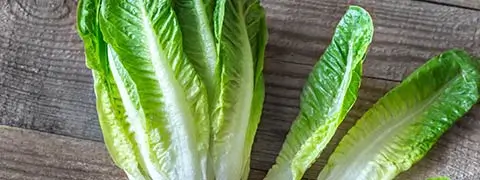
Weight Management
If you’re wondering, “Is romaine lettuce good for weight loss?” I have good news.
With its low-calorie count and high fiber content, romaine lettuce can be an excellent addition to a weight-loss diet.
It helps you feel full without adding many calories to your meals.
Hydration
Due to its high water content, romaine lettuce can help you stay hydrated by contributing to your daily fluid intake.
Romaine Lettuce for Specific Health Concerns
Let’s dive into some specific health concerns and see how romaine lettuce stacks up.
Is Romaine Lettuce Good for Your Kidneys?
Good news for kidney health! Romaine lettuce is low in potassium compared to many other leafy greens, making it a kidney-friendly choice for those who need to limit their potassium intake.
Is Romaine Lettuce Good for Your Liver?
While it’s not known specifically for liver benefits, the overall nutritional profile of romaine lettuce supports general health, which indirectly benefits your liver. Its antioxidants may help protect liver cells from damage.
Is Romaine Lettuce Good for Your Thyroid?
Romaine lettuce is a thyroid-friendly food. Unlike some other leafy greens, it’s low in goitrogens, compounds that can interfere with thyroid function.
Plus, its iron content supports thyroid health.
Is Romaine Lettuce Good for Pregnant Women?
Absolutely! The folate in romaine lettuce is particularly beneficial for pregnant women, as it helps prevent congenital disabilities.
Just be sure to wash it thoroughly to avoid any potential foodborne illnesses.
Varieties of Romaine Lettuce
Did you know there’s more than one type of romaine lettuce? Let’s take a quick look at the main varieties:
- Green Romaine: This is the most common type in grocery stores. It has dark green outer leaves and a pale green heart.
- Red Romaine: This variety has reddish-purple leaves, also known as red leaf lettuce. It’s slightly higher in antioxidants due to its color.
- Baby Romaine: These are young, tender romaine leaves often used in salad mixes.
While the nutritional differences between these varieties are minor, the red romaine, due to its coloring, has a slight edge in antioxidant content.
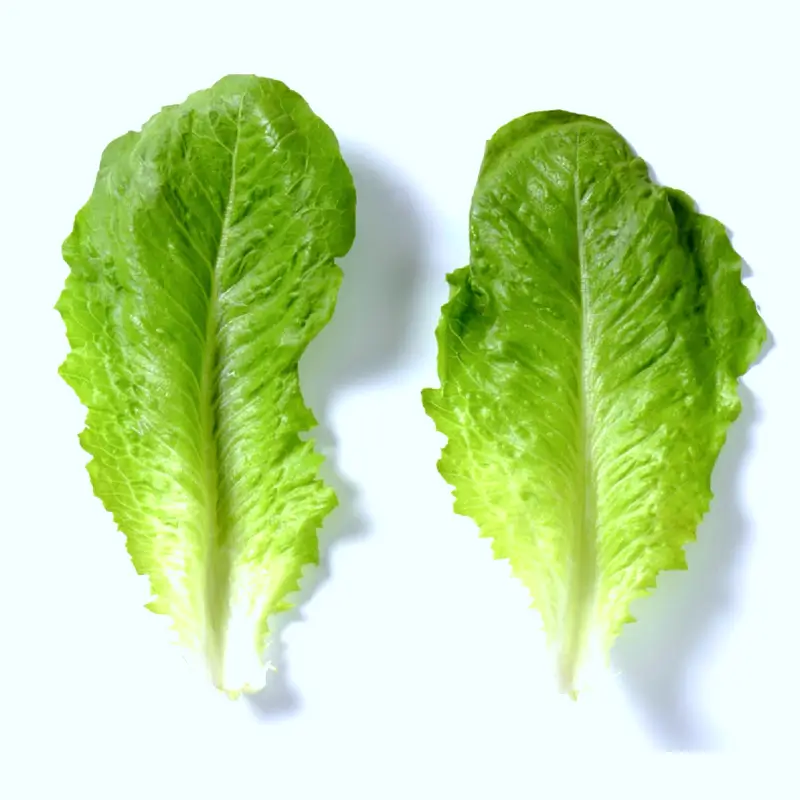
How to Choose and Store Romaine Lettuce
To get the most out of your romaine lettuce, follow these tips:
- Choosing: Look for crisp, fresh-looking leaves without brown edges or slimy spots. The leaves should be tightly packed.
- Storing: Wrap unwashed romaine in paper towels and store it in a plastic bag in the refrigerator. It should last about a week.
- Washing: Just before use, rinse leaves thoroughly under cold running water. The CDC recommends this to prevent foodborne illness.
Potential Side Effects and Precautions
While romaine lettuce is generally safe and healthy, there are a few things to keep in mind:
- Food Safety: Recently, a few outbreaks of foodborne illness linked to romaine lettuce have occurred. As recommended by the CDC, always wash your lettuce thoroughly before eating.
- Vitamin K and Blood Thinners: The high vitamin K content in romaine lettuce could interfere with your treatment if you’re on blood-thinning medications. The NIH provides more information on this interaction. Consult your doctor about your diet if you’re on these medications.
- Pesticides: Opt for organic romaine lettuce to minimize pesticide exposure.
Easy Recipes Featuring Romaine Lettuce
Let’s get cooking! Here are a couple of simple recipes to help you incorporate more romaine into your diet:
Classic Caesar Salad
Ingredients:
- One head of romaine lettuce, chopped
- 1/4 cup Caesar dressing
- 1/4 cup grated Parmesan cheese
- 1 cup croutons
- Freshly ground black pepper
Instructions:
- In a large bowl, toss the chopped romaine with Caesar dressing.
- Add Parmesan cheese and croutons, and toss again.
- Sprinkle with freshly ground black pepper and serve immediately.
Grilled Romaine Hearts
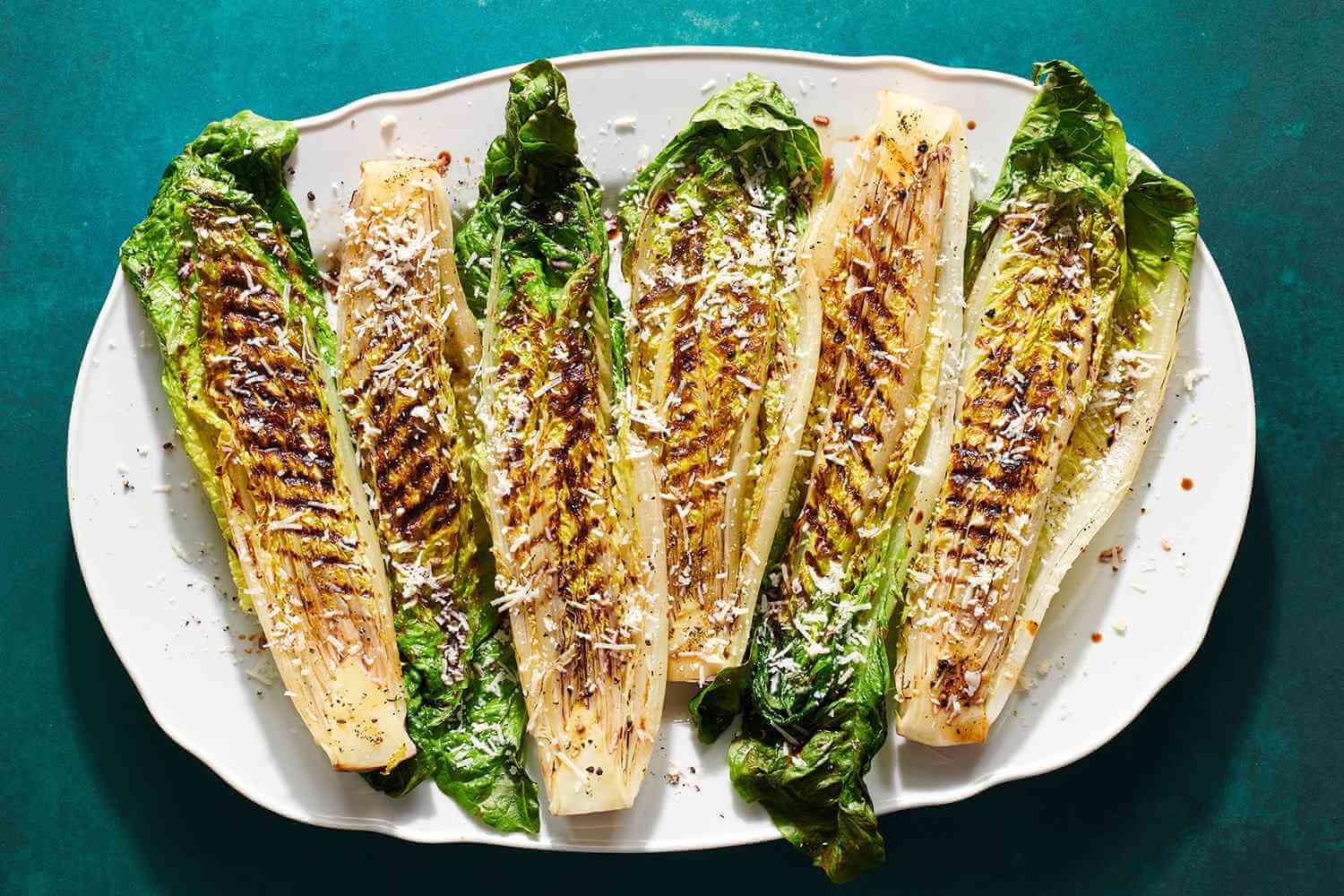
Ingredients:
- Two romaine hearts, halved lengthwise
- Two tablespoons of olive oil
- Salt and pepper to taste
- Two tablespoons of balsamic vinegar
Instructions:
- Preheat the grill to medium-high heat.
- Brush romaine halves with olive oil and season with salt and pepper.
- Grill cut-side down for 2-3 minutes until lightly charred.
- Remove from grill, drizzle with balsamic vinegar, and serve.
Summary
So, is romaine lettuce good for you? The answer is definitely yes!
Romaine lettuce offers many benefits, from supporting heart and bone health to aiding in weight management and hydration. It’s a versatile, low-calorie food that can easily fit into various diets and meal plans.
Remember, while romaine lettuce is nutritious, it’s just one part of a balanced diet. Pair it with other healthy foods to get a full spectrum of nutrients.
If you have specific health concerns or are on medication, it’s best to consult a healthcare professional about your diet.

